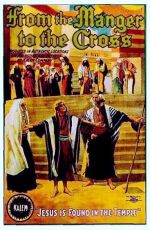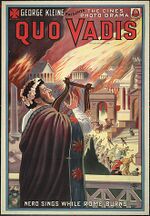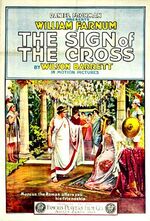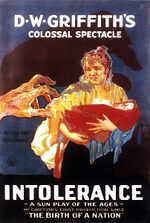Difference between revisions of "Category:Cinema--1910s"
| (9 intermediate revisions by the same user not shown) | |||
| Line 9: | Line 9: | ||
|logo= Logo.png | |logo= Logo.png | ||
|px= 38 | |px= 38 | ||
|content= [[File:Cinema.jpg| | |content= [[File:Cinema.jpg|500px]] | ||
The page: '''Cinema--1910s''', includes (in chronological order) literary works of [[Cinema]], made in the 1910s, or from 1910 to 1919. | The page: '''Cinema--1910s''', includes (in chronological order) literary works of [[Cinema]], made in the [[1910s]], or from 1910 to 1919. | ||
[[File:Manger Cross Olcott.jpg|thumb|150px|[[From the Manger to the Cross (1912 Olcott), feature film]]]] | |||
[[File:Quo Vadis Guazzoni.jpg|thumb|150px|[[Quo Vadis? (1912 Guazzoni), feature film]]]] | [[File:Quo Vadis Guazzoni.jpg|thumb|150px|[[Quo Vadis? (1912 Guazzoni), feature film]]]] | ||
[[File:Jesus Film Antamoro3.jpg|thumb|150px|[[Christus (1916 Antamoro), feature film]]]] | [[File:Jesus Film Antamoro3.jpg|thumb|150px|[[Christus (1916 Antamoro), feature film]]]] | ||
* [[Fiction (1910s)]] -- [[Art (1910s)]] | |||
* [[Dance (1910s)]] -- [[Literature (1910s)]] | |||
* [[Music (1910s)]] -- [[Theatre (1910s)]] | |||
}} | }} | ||
| Line 48: | Line 31: | ||
|content= | |content= | ||
* [[From the Manger to the Cross (1912 Olcott), feature film]] | * [[From the Manger to the Cross (1912 Olcott), feature film]] | ||
* [[Gli ultimi giorni di Pompei (The Last Days of Pompeii / 1913 Caserini), feature film]] | |||
* [[Quo Vadis? (1913 Guazzoni), feature film]] | * [[Quo Vadis? (1913 Guazzoni), feature film]] | ||
* [[Christus (1916 Antamoro), feature film]] | * [[Christus (1916 Antamoro), feature film]] | ||
* [[Intolerance (1916 Griffith), feature film]] | * [[Intolerance (1916 Griffith), feature film]] | ||
}} | |||
{{WindowMain | |||
|title= [[Interpreters]] ([[1910s]]) | |||
|backgroundLogo= Bluebg_rounded_croped.png | |||
|logo = contents.png | |||
|px= 38 | |||
|content= | |||
}} | }} | ||
| Line 60: | Line 52: | ||
{{WindowMain | {{WindowMain | ||
|title= [[Timeline]] ([[1910s]]) | |title= [[Timeline]] ([[1910s]]) | ||
|backgroundLogo= Bluebg_rounded_croped.png | |backgroundLogo= Bluebg_rounded_croped.png | ||
|logo= history.png | |logo= history.png | ||
|px= 38 | |px= 38 | ||
|content= [[File: | |content= [[File:1910s.jpg|thumb|left|250px]] | ||
'''''[[Cinema]]''''' : [[:Category:Cinema--2020s|2020s]] -- [[:Category:Cinema--2010s|2010s]] -- [[:Category:Cinema--2000s|2000s]] -- [[:Category:Cinema--1990s|1990s]] -- [[:Category:Cinema--1980s|1980s]] -- [[:Category:Cinema--1970s|1970s]] -- [[:Category:Cinema--1960s|1960s]] -- [[:Category:Cinema--1950s|1950s]] -- [[:Category:Cinema--1940s|1940s]] -- [[:Category:Cinema--1930s|1930s]] -- [[:Category:Cinema--1920s|1920s]] -- [[:Category:Cinema--1910s|1910s]] -- [[:Category:Cinema--1900s|1900s]] -- [[:Category:Cinema--1850s|1850s]] | |||
'''''[[Fiction]]''''' : [[:Category:Fiction--2020s|2020s]] -- [[:Category:Fiction--2010s|2010s]] -- [[:Category:Fiction--2000s|2000s]] -- [[:Category:Fiction--1990s|1990s]] -- [[:Category:Fiction--1980s|1980s]] -- [[:Category:Fiction--1970s|1970s]] -- [[:Category:Fiction--1960s|1960s]] -- [[:Category:Fiction--1950s|1950s]] -- [[:Category:Fiction--1940s|1940s]] -- [[:Category:Fiction--1930s|1930s]] -- [[:Category:Fiction--1920s|1920s]] -- [[:Category:Fiction--1910s|1910s]] -- [[:Category:Fiction--1900s|1900s]] -- [[:Category:Fiction--1850s|1850s]] -- [[:Category:Fiction--1800s|1800s]] -- [[:Category:Fiction--1700s|1700s]] -- [[:Category:Fiction--1600s|1600s]] -- [[:Category:Fiction--1500s|1500s]] -- [[:Category:Fiction--1450s|1450s]] -- [[Fiction|Home]] | |||
[[: | '''''[[Timeline]]''''' : [[2020s]] -- [[2010s]] -- [[2000s]] -- [[1990s]] -- [[1980s]] -- [[1970s]] -- [[1960s]] -- [[1950s]] -- [[1940s]] -- [[1930s]] -- [[1920s]] -- [[1910s]] -- [[1900s]] -- [[1850s]] -- [[1800s]] -- [[1700s]] -- [[1600s]] -- [[1500s]] -- [[1450s]] -- [[Medieval]] -- [[Timeline|Home]] | ||
}} | }} | ||
{{WindowMain | {{WindowMain | ||
|title= | |title= Languages | ||
|backgroundLogo= Bluebg_rounded_croped.png | |backgroundLogo= Bluebg_rounded_croped.png | ||
|logo= contents.png | |logo= contents.png | ||
|px= 38 | |px= 38 | ||
|content= [[File: | |content= [[File:Languages.jpg|thumb|left|250px]] | ||
'''''[[Cinema]]''''' : [[:Category:Cinema--English|English]] -- [[:Category:Cinema--French|French]] -- [[:Category:Cinema--German|German]] -- [[:Category:Cinema--Italian|Italian]] -- [[:Category:Cinema--Spanish|Spanish]] -/- [[Fiction|Other]] | |||
[[ | '''''[[Fiction]]''''' : [[:Category:Fiction--English|English]] -- [[:Category:Fiction--French|French]] -- [[:Category:Fiction--German|German]] -- [[:Category:Fiction--Italian|Italian]] -- [[:Category:Fiction--Spanish|Spanish]] -/- [[Fiction|Other]] | ||
}} | }} | ||
[[File:Sign Cross Thomson.jpg|thumb|left|150px|[[The Sign of the Cross (1914 Thomson), feature film]]]] | |||
[[File:Jesus Film Griffith.jpg|thumb|150px|left|[[Intolerance (1916 Griffith), film]]]] | |||
|} | |} | ||
|} | |} | ||
== History of Research ([[1910s]]) -- Notes == | |||
By the 1910s, the cinema industry had overcome its initial technical limitations and was ready to grow as the main form of entertainment of modern times. In 1912 ''From the Manger to the Cross'' was the first feature movie of Jesus not to be the result of independently released short films. Visually based on the work of Tissot, it was also one of the first movies ever made on location, in Palestine. | |||
In 1912-13 [[Enrico Guazzoni]] astonished the world with his ''Quo Vadis''. It was a technical wonder, lasting two full hours. | |||
Features films were now a reality that could attract thousands of viewers in theaters all around the globe. Silent movies could be quickly released internationally by merely translating the inter-texts. Biblical movies had an audience and were largely produced and distributed, in spite of the initial reservations by religious authorities. Italy and the United States were the frontrunners in the genre. ''Christus'' (1916), shot on location in the Middle East, soon followed up the success of ''From the Manger to the Cross'' as a sort of Catholic response to its Protestant counterpart. | |||
Movies were now covering the entire spectrum of Jewish and Christian origins, from the [[hebrew Bible]] to the life of the early Church. Jesus remained the favorite subject, but other characters got central stage, from [[Salome]] to [[Judith]], [[Esther]], and [[Mary Magdalene]]. | |||
The evolution of cinema into a global form of entertainment also produced the first attempts at introducing religious subject to a broader audience. Movies like ''Intolerance'' (1916) and ''Redemption'' (1918) intermingled biblical stories with other historical and contemporary narratives. | |||
@2015 [[Gabriele Boccaccini]], University of Michigan | |||
Latest revision as of 15:59, 6 December 2019
|
|
Cinema : 2020s -- 2010s -- 2000s -- 1990s -- 1980s -- 1970s -- 1960s -- 1950s -- 1940s -- 1930s -- 1920s -- 1910s -- 1900s -- 1850s Fiction : 2020s -- 2010s -- 2000s -- 1990s -- 1980s -- 1970s -- 1960s -- 1950s -- 1940s -- 1930s -- 1920s -- 1910s -- 1900s -- 1850s -- 1800s -- 1700s -- 1600s -- 1500s -- 1450s -- Home Timeline : 2020s -- 2010s -- 2000s -- 1990s -- 1980s -- 1970s -- 1960s -- 1950s -- 1940s -- 1930s -- 1920s -- 1910s -- 1900s -- 1850s -- 1800s -- 1700s -- 1600s -- 1500s -- 1450s -- Medieval -- Home
Languages Cinema : English -- French -- German -- Italian -- Spanish -/- Other Fiction : English -- French -- German -- Italian -- Spanish -/- Other
|
History of Research (1910s) -- Notes
By the 1910s, the cinema industry had overcome its initial technical limitations and was ready to grow as the main form of entertainment of modern times. In 1912 From the Manger to the Cross was the first feature movie of Jesus not to be the result of independently released short films. Visually based on the work of Tissot, it was also one of the first movies ever made on location, in Palestine.
In 1912-13 Enrico Guazzoni astonished the world with his Quo Vadis. It was a technical wonder, lasting two full hours.
Features films were now a reality that could attract thousands of viewers in theaters all around the globe. Silent movies could be quickly released internationally by merely translating the inter-texts. Biblical movies had an audience and were largely produced and distributed, in spite of the initial reservations by religious authorities. Italy and the United States were the frontrunners in the genre. Christus (1916), shot on location in the Middle East, soon followed up the success of From the Manger to the Cross as a sort of Catholic response to its Protestant counterpart.
Movies were now covering the entire spectrum of Jewish and Christian origins, from the hebrew Bible to the life of the early Church. Jesus remained the favorite subject, but other characters got central stage, from Salome to Judith, Esther, and Mary Magdalene.
The evolution of cinema into a global form of entertainment also produced the first attempts at introducing religious subject to a broader audience. Movies like Intolerance (1916) and Redemption (1918) intermingled biblical stories with other historical and contemporary narratives.
@2015 Gabriele Boccaccini, University of Michigan
Pages in category "Cinema--1910s"
The following 52 pages are in this category, out of 52 total.
1
- La samaritana (The Woman of Samaria / 1910), short film
- Au temps des premiers chrétiens (In the Time of the First Christians / 1910 Calmettes), short film
- Dall'amore al martirio (From Love To Martyrdom / 1910 Cines), short film
- Salome (1910 Falena), short film
- Esther (The Marriage of Esther / 1910 Feuillade), short film
- Le Christ en croix (Christ on the Cross / 1910 Feuillade), short film
- Le festin de Balthazar (The Feast of Balthazar / 1910 Feuillade), short film
- Mater dolorosa (1910 Feuillade), short film
- Hérodiade (Herodias / 1910 Jasset, Hatot), short film
- San Paolo, dramma biblico (The Life of St. Paul / 1910 Liguoro), short film
- Jésus de Nazareth (Jesus of Nazareth / 1911 Calmettes), short film
- Esther: A Biblical Episode (1911 Frenkel), short film
- Samson and Delilah (1911 Frenkel), short film
- Giuda (Judas / 1911 Frusta), short film
- I Maccabei (The Maccabees / 1911 Guazzoni), short film
- Though Your Sins Be as Scarlet (1911 Kent), short film
- Satana (Satan / 1912 Maggi), feature film
- The Holy City (1912 Arnaud), short film
- Kri Kri e il 'Quo vadis?' (Kri Kri and the 'Quo vadis?' / 1912 Cines), short film
- Androclès (Androcles and the Lion / 1912 Feuillade), short film
- Herod (1912 Frenkel), short film
- The Illumination (1912 Gaskill), short film
- Erodiade (Herodias / 1912 Mentasti), short film
- L'ebreo errante (The Wandering Jew / 1912 Roma Film), feature film
- Esther (1913 Andréani), short film
- The Three Wise Men (1913 Campbell), short film
- The Daughter of the Hills (1913 Dawley), short film
- Thus Saith the Lord (1913 Eclair), short film
- The Shadow of Nazareth (1913 Maude), short film
- Jone; o, Gli ultimi giorni di Pompei (The Last Days of Pompeii / 1913 Vidali), feature film
- Spartaco (Spartacus / 1913 Vidali), feature film
- The Last Supper (1914 Johnstone), short film
- Mary Magdalene (1914 Maude), short film
- Samson (1914 MacDonald), feature film
- La Passion (The Life of Our Saviour; or, The Passion Play / 1914 Maître), feature film
- Joseph in the Land of Egypt (1914 Moore), feature film
- Il Golgota (Golgotha / 1916 Consalvi), feature film
- Esther (1916 Elvey), feature film
- La figlia d'Erodiade (The Daughter of Herodias / 1916 Falena), short film
- L'ebreo errante (The Wandering Jew / 1916 Paradisi), feature film
- The Chosen Prince; or, The Friendship of David and Jonathan (1917 Mong), feature film
- Ο ανήφορος του Γολγοθά (The Uphill of Golgotha / 1917 Vratsanos), film
- Restitution (1918 Gaye), feature film
- Maria di Magdala (Mary of Magdala / 1918 Molinari), feature film
- Das Buch Esther (The Book of Esther / 1919 Krafft, Reicher), feature film
Media in category "Cinema--1910s"
The following 10 files are in this category, out of 10 total.
- 1912 Marston (film).jpg 449 × 600; 92 KB
- 1912 Olcott (film).jpg 300 × 460; 49 KB
- 1913 Rodolfi & Caserini (film).jpg 200 × 273; 24 KB
- 1913 Guazzoni (film).jpg 330 × 475; 67 KB
- 1914 Griffith (film).jpg 312 × 445; 25 KB
- 1914 Thomson (film).jpg 300 × 441; 49 KB
- 1916 Antamoro (film).jpg 1,382 × 1,761; 278 KB
- 1916 Griffith (film).jpg 403 × 599; 80 KB
- 1918 Edwards (film).jpg 330 × 523; 93 KB
- 1919 Gallone (film).jpg 500 × 678; 127 KB

















